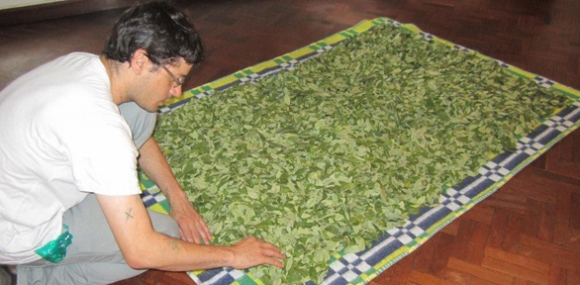Videobrasil Residency Network wraps up schedule
The artist residencies awarded at the 17th International Contemporary Art Festival Sesc_Videobrasil involving artists and institutions from the North and South Hemispheres have been underway since the second half of 2012. Following the residencies undertaken by Carla Zaccagnini, Dirceu Maués, and Claudia Joskowicz, the exchange and production process continues with Adriano Costa, Natasha Mendonca, Moran Shavit, and Gabriel Mascaro, that wrap up the schedule regarding to that edition.
Invited to spend a season in São Paulo from October to December 2012 under the artist-in-residence program of Network supporter Fundação Armando Alvares Penteado (FAAP), Israel’s Moran Shavit noted that the experience provided her outsider status with a dual character: the short period available rendered her unable to become deeply integrated with the local scene; on the other hand, it provided the ideal conditions for her to observe the surroundings in a distanced fashion. “I was aiming to use the time of my residency to develop a project. While working on the project, I’ve realized how fascinated I am by the subject of immigration/integration and though I was focusing here on a specific community I also started a process of reflecting on my own background in relation to that subject,” says the artist. It is worth noting that Shavit’s award-winning work at the 17th Festival, Exploring, takes intimate issues as a starting point in order to cast a poetic eye on global (affective) transit.
Brazil’s Gabriel Mascaro, whose As aventuras de Paulo Bruscky won a prize at the 2011 Festival, will conduct a residency at Videoformes, in Clermont-Ferrand, France, from January to March 2013 (with backing from the French Consulate in São Paulo and Alliance Française). He explains that “the residency comes at a very fortuitous time to help me further the research work I started in my previous work, Doméstica, in which I supplied seven teenagers with video cameras to record their maids for one week. The work I will develop during the residency is titled My Free Time, and it expands on this experience of decentralizing the businesslike aspect of images. It will be an investigation on the use of time. In 2009, the American technology giant Amazon created a powerful device that enables companies to post questionnaires online. Users are allowed to choose when, how, and how many forms they will fill out, thus helping enterprises to chart out consumers’ behaviors and desires.” The piece he will develop will subvert that platform to a certain extent and will involve the large Portuguese community in Clermont-Ferrand.
Another Brazilian, Adriano Costa, whose Tapetes—which he has described as a pre-sculptural piece—won him a residency prize at Galería Kiosko, in Santa Cruz de la Sierra, Bolivia, will undertake his research there until February, continuing with his probe into the ontological and typological statute of art. The residency is backed by residencias_en_red, the Cultural Center of Spain, and the Spanish Agency for International Development Cooperation (AECID). Click here to see images from Costa's show at Galería Kiosko, where he presented his work.
India’s Natasha Mendonca, who won a prize at the Festival Sesc_Videobrasil for her film Jan Villa, will undertake a FAAP-awarded residency in São Paulo. Based on her personal experience with nomadic living, she intends to experiment with the documentary and fiction genres. Regarding the project she will work on, she says: “Being from Bombay, I find many similarities with the cityscape in São Paulo. I intend to play more with this confusion of place through a photo series on streets. I am also interested in performance and ritual, and hope to collaborate with local artists on a series of video dialogues that address specifically the idea of being ‘hybrid,’ for example, between biology and technology, male and female, darkness and light, etc., interconnected but opposing forces.”
As an organization dedicated to fostering contemporary art production and diffusion, Videobrasil believes that the multicultural experiences made possible by international artist and curator transit are crucially conducive to a deeper artistic debate. Dedicated mainly to art produced in the geopolitical South of the planet—Latin America, Africa, Oceania, Eastern Europe, the Middle East, and the Caribbean— Videobrasil will increase its actions in this field in 2013, as the Festival reaches its 30th anniversary. Details on the upcoming Festival edition and further developments in our international projects will be disclosed soon.
In addition to the institutions mentioned above, the Videobrasil Residency Network includes the Vrije Academie Werkplaats voor Beeldende Kunsten, Instituto Sacatar, and pARTage—the latter two, thanks to support from the Prince Claus Fund. Delfina Foundation and Casa Tomada are the partners for the first edition of Videobrasil em Contexto commissioning, residency, and research prize. For the residencies to be awarded in 2013, partnerships have been established with Ashkal Alwan, FAAP, Instituto Sacatar, Raw Material Company, Red Gate/The China Art Foundation, and the Wexner Center for the Arts.



